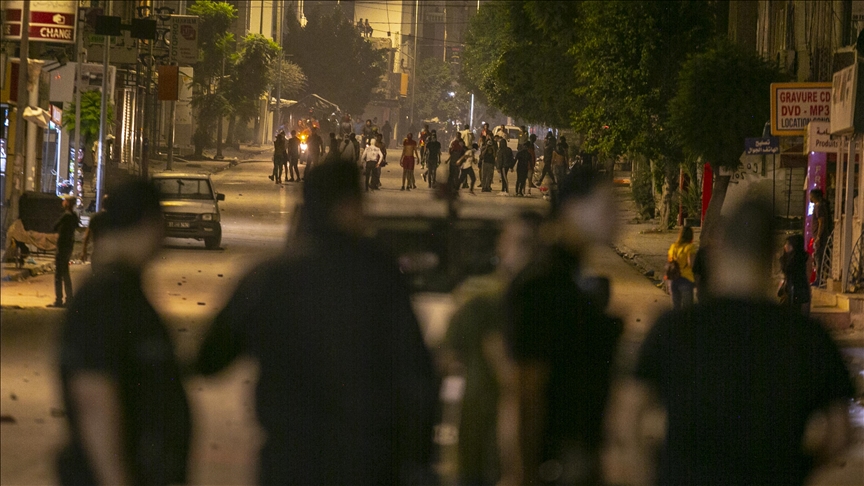In the capital Tunis, fighting broke out between protesters and police on Saturday after the funeral of a young man who was severely injured by police in August this year and later died.

Photo: Justified anger of the youth inflamed in the working-class neighborhoods in Tunis Source: Tunisie numerique
There has been unrest in Tunisia for a long time, since the "Arab Spring", which supposedly led to an improvement for the people through the "Tunisian Revolution" that brought them "democracy", the unrest and uprisings continue in the country exploited by French, German and Italian imperialism. Every year there are several uprisings. This has already led the Tunisian state to create a special anti-insurgency police force and to equip it with considerable resources. In 2019 alone, the Tunisian state spent 2.9% of its GDP on its military, about $1 billion, and a third of that was invested in the military police. The Tunisian people are fed up with imperialism, and at the slightest spark, uprisings arise. The fact that between 6 and 7 thousand young people went to Iraq to fight for the IS shows how the Tunisian people are fed up with oppression and imperialism and are willing to fight for change, even if it is under the banners of reactionary fundamentalists.
Last year, 2021, was especially marked by struggles of the Tunisian people. Due to the economic crisis, and the resulting consequences such as unemployment through mass dismissals, increase in food prices (poverty and hunger), corruption of officials and rulers, increase of repression against the people especially through police violence, and not least the failure of the government to protect the population from the pandemic, which in Tunisia resulted in one of the highest rates of infection and death in all of Africa, the masses took to the streets. In addition, there were once again demonstrations against the dumping and burning of garbage. This is because hundreds of thousands of tons of toxic waste are shipped from Europe to Tunisia, where it is dumped and burned in huge open garbage dumps near cities and settlements. From the smoke, stench and insects that come from these dumps, people get sick and die. In addition, there were uprisings against the president, who dissolved the parliament in July 2021.

Photo: Street fighting continues into Friday night and continues for 2 more days and nights Source: Anadolu Agency
On Friday 14 October, there was again street fighting in the capital Tunis. These occurred in response to the murder of a 24-year-old man Malek Selmi, who was seriously wounded in the neck by police while fleeing in August this year. After fifty days in hospital, he died on Thursday. After his funeral on Friday, strong street fighting ignited against the police in the working-class neighborhoods of Ettadhamen and Ettahrir in the capital Tunis. Police used tear gas and rubber bullets against the outraged crowds. But they fought back. Stones, Molotov cocktails, barricades and burning cars were used by the inhabitants of the working class district to fight back and express their indignation against the murder and harassment by the police. These street fights have been going on for 3 days and nights. Despite some arrests by the police, the masses are not intimidated.
Whether or not these street battles last any longer. One thing is clear, the situation in Tunisia remains hot, and with the aggravation of contradictions due to the economic crisis and interimperialist conflicts, there will be much more unrest and uprisings. And the already very frequent outcries of the Tunisian people will turn into a continuous outburst of rage.
